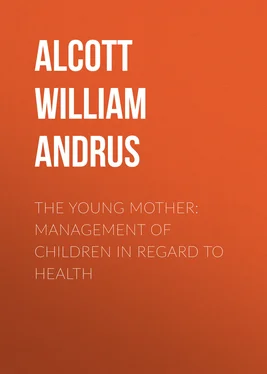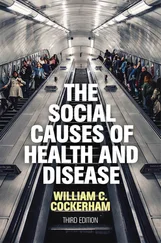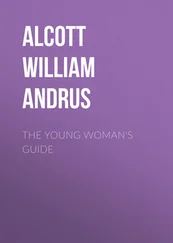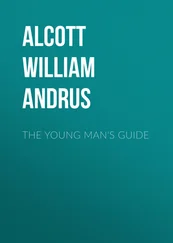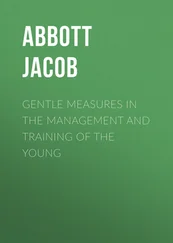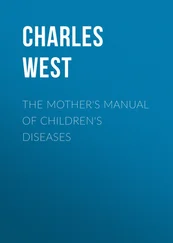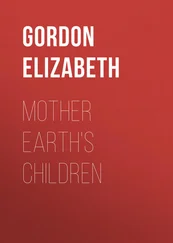William Alcott - The Young Mother - Management of Children in Regard to Health
Здесь есть возможность читать онлайн «William Alcott - The Young Mother - Management of Children in Regard to Health» — ознакомительный отрывок электронной книги совершенно бесплатно, а после прочтения отрывка купить полную версию. В некоторых случаях можно слушать аудио, скачать через торрент в формате fb2 и присутствует краткое содержание. Жанр: popular_business, upbringing_book, foreign_edu, на английском языке. Описание произведения, (предисловие) а так же отзывы посетителей доступны на портале библиотеки ЛибКат.
- Название:The Young Mother: Management of Children in Regard to Health
- Автор:
- Жанр:
- Год:неизвестен
- ISBN:нет данных
- Рейтинг книги:4 / 5. Голосов: 1
-
Избранное:Добавить в избранное
- Отзывы:
-
Ваша оценка:
- 80
- 1
- 2
- 3
- 4
- 5
The Young Mother: Management of Children in Regard to Health: краткое содержание, описание и аннотация
Предлагаем к чтению аннотацию, описание, краткое содержание или предисловие (зависит от того, что написал сам автор книги «The Young Mother: Management of Children in Regard to Health»). Если вы не нашли необходимую информацию о книге — напишите в комментариях, мы постараемся отыскать её.
The Young Mother: Management of Children in Regard to Health — читать онлайн ознакомительный отрывок
Ниже представлен текст книги, разбитый по страницам. Система сохранения места последней прочитанной страницы, позволяет с удобством читать онлайн бесплатно книгу «The Young Mother: Management of Children in Regard to Health», без необходимости каждый раз заново искать на чём Вы остановились. Поставьте закладку, и сможете в любой момент перейти на страницу, на которой закончили чтение.
Интервал:
Закладка:
The advantages of such a dress are, that the movements of the infant will be, as we have already seen, free and unrestrained, and we shall escape the misery of hearing the screams which now so frequently accompany the dressing and undressing of almost every child. No chafings from friction, moreover, can occur; and as the insensible perspiration is in this way promoted over the whole surface of the body, the sympathy between the stomach and skin is happily maintained. A healthy sympathy of this kind, duly kept up, does much towards preserving the stomach in a good state, and the skin from eruptions and sores.
But as I apprehend that christianity is not yet very deeply rooted in the minds and hearts of parents, I have already expressed my doubts whether they are prepared to receive and profit by advice at once rational and physiological. Still I cannot help hoping that I shall succeed in persuading mothers to have every part of a child's dress perfectly loose, except the band already referred to; and that should be but moderately tight.
Common humanity ought to teach us better than to put the body of a helpless infant into a vise , and press it to death, as the first mark of our attention. Who has not been struck with a strange inconsistency in the conduct of mothers and nurses, who, while they are so exceedingly tender towards the infant in some points as to injure it by their kindness, are yet almost insensible to its cries of distress while dressing it? So far, indeed, are they from feeling emotions of pity, that they often make light of its cries, regarding them as signs of health and vigor.
There can be no doubt, I confess, that the first cries of an infant, if strong, both indicate and promote a healthy state of the lungs, to a certain extent; but there will always be unavoidable occasions enough for crying to promote health, even after we have done all we can in the way of avoiding pain. They who only draw the child's dress the tighter, the more it cries, are guilty of a crime of little less enormity than murder.
"Think," says Dr. Buchan, "of the immense number of children that die of convulsions soon after birth; and be assured that these (its cries) are much oftener owing to galling pressure, or some external injury, than to any inward cause." This same writer adds, that he has known a child which was "seized with convulsion fits" soon after being "swaddled," immediately relieved by taking off the rollers and bandages; and he says that a loose dress prevented the return of the disease.
I think it is obvious that the utmost extent to which we ought to go, in yielding to the fashion, as it regards form, is to use three pieces of clothing—the shirt, the petticoat and the frock; all of which must be as loose as possible; and before the infant begins to crawl about much, the latter should be long, for the salve of covering the feet and legs. At four or five years of age, loose trowsers, with boys, may be substituted for the petticoat; but it is a question whether something like the frock might not, with every individual, be usefully retained through life.
I wish it were unnecessary, in a book like this, to join in the general complaint against tight lacing any part of the body, but especially the chest. But as this work of torture is sometimes begun almost from the cradle, and as prevention is better than cure, the hope of preventing that for which no cure appears yet to have been found, leads me to make a few remarks on the subject.
As it has long been my opinion that one reason why mothers continue to overlook the subject is, that they do not understand the structure and motion of the chest, I have attempted the following explanation and illustration.
I have already said, that if we bandage tightly, for a considerable time, any part of the human frame, it is apt to become weaker. The more a portion of the frame which is furnished with muscles, those curious instruments of motion, is used, provided it is not over -exerted, the more vigorous it is. Bind up an arm, or a hand, or a foot, and keep it bound for twelve hours of the day for many years, and think you it will be as strong as it otherwise would have been? Facts prove the contrary. The Chinese swathe the feet of their infant females; and they are not only small, but weak.
I have said their feet are smaller for being bandaged. So is a hand or an arm. Action—healthy, constant action—is indispensable to the perfect development of the body and limbs. Why it is so, is another thing. But so it is; and it is a principle or law of the great Creator which cannot be evaded. More than this; if you bind some parts of the body tightly, so as to compress them as much as you can without producing actual pain, you will find that the part not only ceases to grow, but actually dwindles away. I have seen this tried again and again. Even the solid parts perish under pressure. When a person first wears a false head of hair, the clasp which rests upon the head, at the upper part of the forehead, being new and elastic, and pressing rather closely, will, in a few months, often make quite an indentation in the cranium or bone of the head.
Now is it probable—nay, is it possible—that the lungs, especially those of young persons, can expand and come to their full and natural size under pressure, even though the pressure should be slight? Must they not be weakened? And if the pressure be strong, as it sometimes is, must they not dwindle away?
We know, too, from the nature and structure of the lungs themselves, that tight lacing must injure them. Many mothers have very imperfect notions of what physicians mean, when they say that corsets impede the circulation, by preventing the full and undisturbed action of the lungs. They get no higher ideas of the motion of the chest , than what is connected with bending the body forward and backward, from right to left, &c. They know that, if dressed too tightly, this motion is not so free as it otherwise would be; but if they are not so closely laced as to prevent that free bending of the body of which I have been speaking, they think there can be no danger; or at least, none of consequence.
Now it happens that this sort of motion is not that to which physicians refer, when they complain of corsets. Strictly speaking, this bending of the whole body is performed by the muscles of the back, and not those of the chest. The latter have very little to do with it. It is true, that even this motion ought not to be hindered; but if it is, the evil is one of little comparative magnitude.
Every time we breathe naturally, all the ribs, together with the breast bone, have motion. The ribs rise, and spread a little outward, especially towards the fore part. The breast bone not only rises, but swings forward a little, like a pendulum. But the moment the chest is swathed or bandaged, this motion must be hindered; and the more, in proportion to the tightness.
On this point, those persons make a sad mistake, who say that "a busk not too wide nor too rigid seems to correspond to the supporting spine, and to assist, rather than impede the efforts of nature, to keep the body erect."
Can we seriously compare the offices of the spine with those of the ribs, and suppose that because the former is fixed like a post, at the back part of the lungs, therefore an artificial post in front would be useful? Why, we might just as well argue in favor of hanging weights to a door, or a clog to a pendulum, in order to make it swing backwards and forwards more easily. We might almost as well say that the elbow ought to be made firm, to correspond with the shoulders, and thus become advocates for letting the stays or bandages enclose the arm above the elbow, and fasten it firmly to the side. Indeed, the consequences in the latter case, aside from a little inconvenience, would not be half so destructive to health as in the former. The ribs, where they join to the back bone, form hinges; and hinges are made for motion. But if you fasten them to a post in front, of what value are the hinges?
Читать дальшеИнтервал:
Закладка:
Похожие книги на «The Young Mother: Management of Children in Regard to Health»
Представляем Вашему вниманию похожие книги на «The Young Mother: Management of Children in Regard to Health» списком для выбора. Мы отобрали схожую по названию и смыслу литературу в надежде предоставить читателям больше вариантов отыскать новые, интересные, ещё непрочитанные произведения.
Обсуждение, отзывы о книге «The Young Mother: Management of Children in Regard to Health» и просто собственные мнения читателей. Оставьте ваши комментарии, напишите, что Вы думаете о произведении, его смысле или главных героях. Укажите что конкретно понравилось, а что нет, и почему Вы так считаете.
